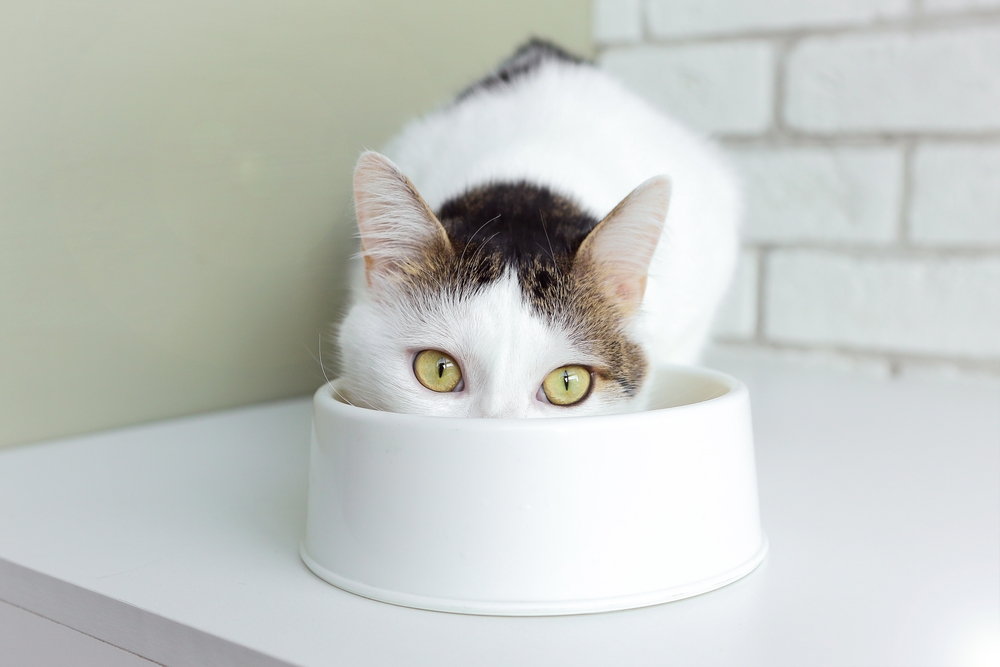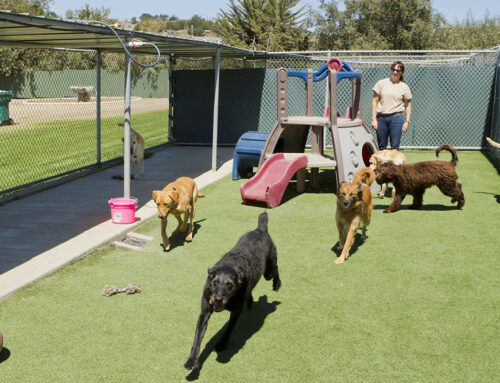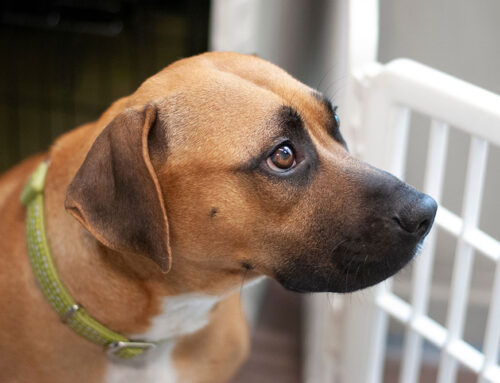Pets thrive on routine—they like to get up, eat, play, pee, greet you at the door, and sleep at predictable times. When they suddenly show more or less interest in their food or water, a health problem could be to blame. The Memorial Villages Animal Hospital team has compiled several reasons why your pet’s habits may have changed, and when you should seek veterinary care to investigate the problem.
#1: Your pet is acutely sick
An acutely sick pet who is not feeling well may not eat or drink for long periods and may show other illness signs, including lethargy, vomiting, or diarrhea. Nearly any illness can cause your pet to act this way, but pancreatitis, foreign body ingestion, various infections, toxin ingestion, and acute pain from trauma or injury are common causes. Eating and drinking are basic needs, and your pet’s instinctual survival drive means that if they are not eating and drinking at all, they are likely extremely sick, and you should contact our veterinary team right away.
#2: Your pet is stressed
Stress, anxiety, and associated behavioral disorders commonly cause pets to eat or drink less. If your pet will not eat when you leave them alone, when you have visitors, when they hear a loud noise, or when a new pet enters the home, stress could be to blame. Other stress signs include accidents in the house, more or less interaction with family members, and body language cues, such as frequent panting, averting eye contact, or hiding. Stress and anxiety-related disorders are treatable with medications, household management changes, and strict adherence to a prescribed behavioral modification program.
#3: Your pet has developed an endocrine disease
Endocrine diseases are notorious for producing changes in appetite, thirst, and urine volume as their primary symptoms. Diabetes, high or low thyroid hormone production, Addison’s disease, and Cushing’s syndrome are the worst offenders and typically cause noticeable and drastic changes in your pet’s eating or drinking habits. Other endocrine disease signs include changes in energy level and weight.
#4: Your pet has developed cognitive dysfunction syndrome
Cognitive dysfunction syndrome is common in dogs and cats older than 10 years and is considered analogous to dementia or Alzheimer’s in humans. Abnormal proteins build up in the brain and impair neurologic functions associated with cognition and coordination, and lead to confusion, disorientation, staring, altered sleep-wake cycle, and altered appetite or thirst.
#5: Your pet has dental pain
Dental disease is the most common problem diagnosed in pets 3 years and older. Progressively worsening gingivitis, tooth root infections, or jaw bone damage are painful, and your pet will likely eat or drink significantly less. They may also lose interest in chewing and playing because of their oral pain.
#6: Your pet has developed a chronic disease
Chronic conditions such as arthritis, heart disease, cancer, gastrointestinal (GI) diseases, pancreatic conditions, and liver disease can cause your pet to eat or drink less, simply because they don’t feel well. Dogs and cats with kidney disease commonly drink and urinate large volumes, but this can mimic several other common endocrine diseases. Chronic diseases in aging pets often cause vague signs that are difficult to pinpoint or that overlap with other diseases and usually require blood, urine, and imaging tests for a diagnosis. Annual wellness screening tests will help detect these problems before they snowball into larger issues.
When to seek veterinary care for pet habit changes

If your pet is eating or drinking more or less for a day or two but then returns to normal, you likely have little cause for worry, but a habit change accompanied by other illness signs, such as vomiting, diarrhea, or extreme lethargy, should prompt an urgent veterinary visit. A habit that changes slowly and becomes a consistent problem is likely the result of an underlying disease process, and your pet should visit our veterinary team at your earliest convenience. Most of these conditions are treatable, and treatment often vastly improves the pet’s quality of life.
Sometimes habit changes are the result of normal aging processes, such as a dog who eats less enthusiastically because their sense of smell has slightly declined. More often than not, however, a habit change indicates an underlying problem, and you should check in with our Memorial Villages Animal Hospital team. Call us to schedule a visit if your pet’s habits have changed over time, or for your pet’s next routine wellness examination and screening tests.









Leave A Comment